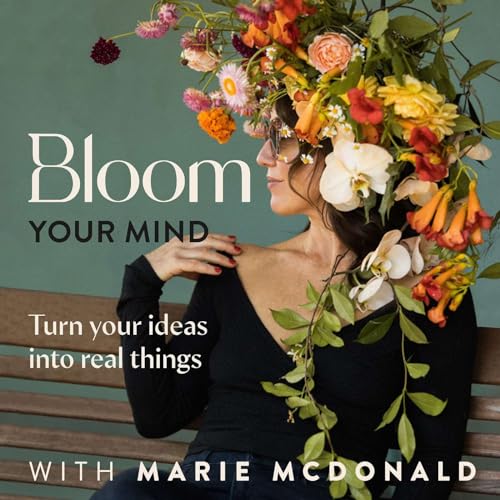
Bloom Your Mind
Failed to add items
Add to basket failed.
Add to Wish List failed.
Remove from Wish List failed.
Follow podcast failed
Unfollow podcast failed
-
Narrated by:
-
By:
-
Marie McDonald
About this listen
We all think and talk about what we’ll do someday, but what if that someday could start right now? If there’s a change you want to make in yourself, in your life, or an idea that you have that you want to make real … this podcast is for you. After 20 years leading and coaching innovators, Certified Coach Marie McDonald is breaking down how great change-makers think so you can do what they do and take your ideas out of your head and into the world where they belong. We’ll teach you how to stop trying to get other people to like you and your ideas, and how to be your own biggest fan instead. You’ll learn how to ditch the drama and have fun with failure, to stop taking things personally, and to get out of anxiety and into decisive action when you don’t even know how or what you’re doing yet. Marie has used this work to go from bar tender to Vice President, to create the family of her dreams, and to start a multiple six-figure business from scratch within eight months. Whether you want to change a relationship, a habit, write a book or start a movement, it starts here on The Bloom Your Mind Podcast. Find me on Instagram @the.bloom.coach to get a daily mind-bloom, and join my weekly list. See you inside!
© 2025 Bloom Your Mind-
 Jan 9 202614 mins
Jan 9 202614 minsFailed to add items
Sorry, we are unable to add the item because your shopping cart is already at capacity.Add to basket failed.
Please try again laterAdd to Wish List failed.
Please try again laterRemove from Wish List failed.
Please try again laterFollow podcast failed
Unfollow podcast failed
-
 15 mins
15 minsFailed to add items
Sorry, we are unable to add the item because your shopping cart is already at capacity.Add to basket failed.
Please try again laterAdd to Wish List failed.
Please try again laterRemove from Wish List failed.
Please try again laterFollow podcast failed
Unfollow podcast failed
-
 Dec 19 202519 mins
Dec 19 202519 minsFailed to add items
Sorry, we are unable to add the item because your shopping cart is already at capacity.Add to basket failed.
Please try again laterAdd to Wish List failed.
Please try again laterRemove from Wish List failed.
Please try again laterFollow podcast failed
Unfollow podcast failed


